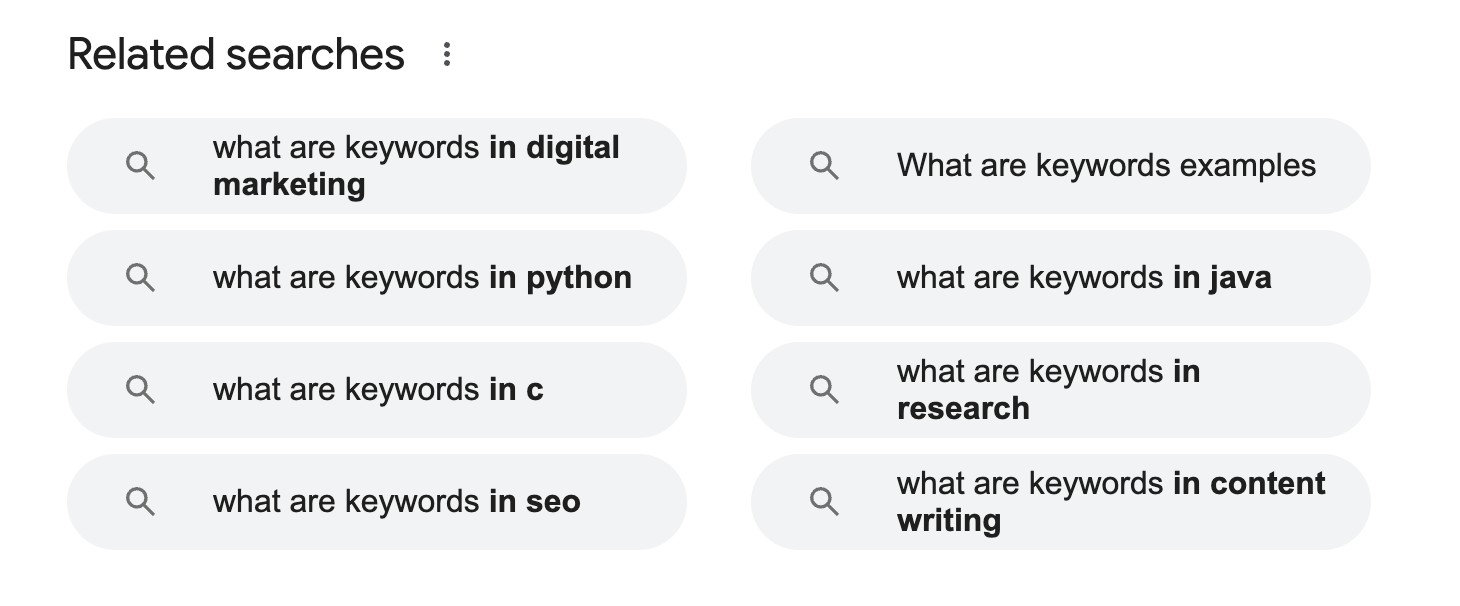Published: 29 Apr 2024
Last updated: 27 Mar 2024
Read time: minutes
Introduction
Roughly 8.5 billion searches are conducted daily and keywords serve as the compass guiding users to their desired destinations. But beyond mere words on a screen, keywords are the key to unlocking the hearts and minds of your target audience. The advantages of SEO best practices with keyword research is that, should you follow the data and keep your audiences front of mind, your content should directly answer what your audience is looking for. most people think the process for content is:
Content > insert keywords > Target their audience
When really is should be:
Target audience > Keywords > Content
This is for the simple reason that, while you could write an incredible piece of content, if it has a monthly search volume of 10, then it will never rank or get the traffic you hope for through search engines. Therefore, defining your audience and then discovering what they search for and the search volume on those specific keywords is a better starting point to make quality content that your audience is actually looking for.
This blog aims to explore the relationship between keywords and your audience, uncovering strategies to craft content that resonates, captivates, and converts.
Lead generation and qualified leads with relevant keywords
At the heart of every successful SEO strategy lies the selection and use of relevant keywords that speak directly to your target audience. Keywords are the search terms or phrases that users type into search engines to find information, products, or services. By aligning your content with the language and interests of your audience, you not only improve your visibility in search results but also increase the likelihood of attracting qualified leads and potential customers.
Techniques for Discovering Keywords
Discovering the right keywords for your audience can be a difficult task, but fear not – there are tools and techniques to simplify the process. Keyword research involves identifying the words and phrases that your target audience is using to search for information related to your business. From free tools like Google Keyword Planner to premium options like SEMrush and Ahrefs, there's no shortage of tools to help uncover valuable keywords. Most tools consider factors like search volume and competition, and you need to consider relevance to your audience when selecting keywords. Many tools also have keyword search word generators which can be really useful for giving you similar, related and question searches based on a topic keyword you enter. This is a great way to generate content ideas, like we said with the process earlier:
Target audience > Keywords > Content
For example, we could write a great piece of content targeting the keyword "Search engine optimisation for Google". On the face of it, it looks relevant to what we do as a business, it could be interesting to our audience and we are able to write a compelling and accurate piece of content about it.
Sounds good.
But with keyword research tools, we can discover that the monthly search volume of "Search engine optimisation for Google" averages just 10 monthly searches, while also having a difficulty ranking rating of 61 out of 100, considered "Not easy" needing a lot of high quality referring domains and well optimised content to rank for the keyword.
Ah, not so good.
By finding out what people are searching for first, I could have seen that "check ranking of website" has a monthly search volume of 6.6k and a difficulty score of 39 out of 100 "low competition keyword". By knowing this, and that search engine's main objective is providing searchers with the best and most relevant content available in relation to their search, businesses can tailor content to the search, and therefore, directly answer the search giving them a better chance for higher rankings.
Some tools also allow you to assess your competitor websites by entering the URL of a page and showing you what keywords they are using which can also be a very useful way of gauging what audiences are looking for, while also assessing the successes and failures of the competition.
Keyword research tools are incredibly useful not just for helping you discover viable keywords. However, the main downfall of these tools includes the cost and the potential learning curve involved with navigating the platforms and making sure you execute the task well - this is where BuiltForYou comes in, we create a list a relevant and realistic keywords built for you and your audience.
A free tip to discover relevant keywords is to look at the "Related searches" or "People also ask" section on the Google listings page when you make a search (see below).


Navigating search intent vs. keyword density
To achieve keyword optimisation, it's essential to strike a delicate balance between catering to user intent and avoiding keyword stuffing. User intent refers to the underlying motivation or purpose behind a user's search query. While keywords are crucial for signalling relevance to search engines, prioritising user intent ensures that your content meets the needs and expectations of your audience. Focus on crafting content that provides genuine value and addresses the questions, concerns, and desires of your target audience, rather than simply cramming in keywords for the sake of ranking higher.
How to Implement Keywords
While you are writing, or once you've crafted your content, it's time to strategically implement your chosen keywords to maximise their impact. Incorporate keywords naturally into your titles, headings, meta descriptions, and body copy, ensuring that they seamlessly integrate with the flow of your content. Avoid over-optimisation and keyword stuffing, as these tactics can detract from the user experience and may incur penalties from search engines. Instead, focus on creating valuable, informative content that genuinely addresses the needs of your audience while incorporating relevant keywords in a natural and organic manner.
Structuring Keywords with User Intent in Mind
As you weave keywords into your content, keep the overarching goal of meeting user intent at the forefront of your mind. Consider the different stages of the buyer's journey and tailor your content to address the specific needs and motivations of your audience at each stage. Whether they're seeking information, comparing products, or ready to make a purchase, anticipate their intent and provide relevant, valuable content that guides them along their journey. By structuring your keywords with user intent in mind, you can create a seamless digital experience that resonates with your audience and drives meaningful engagement.
Conclusion
In short, keywords connect brands with their audiences. By understanding the importance of relevant keywords, mastering techniques for keyword discovery, and prioritising user intent over keyword density, you can create content that resonates with your target audience and drives meaningful engagement. So, harness the power of keywords, and unlock the true potential of your digital content. Your audience awaits.
Want help mastering your keywords? Get in touch and pave the way for deeper connections, greater visibility, and lasting impact.











